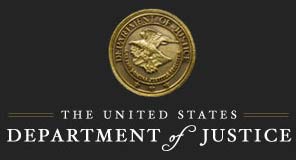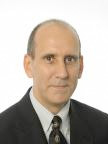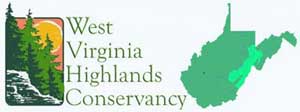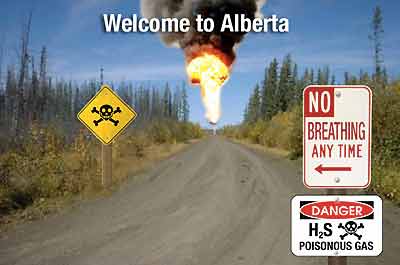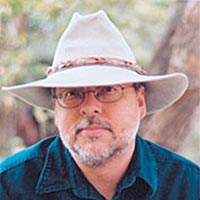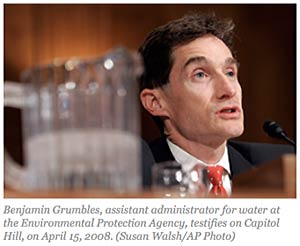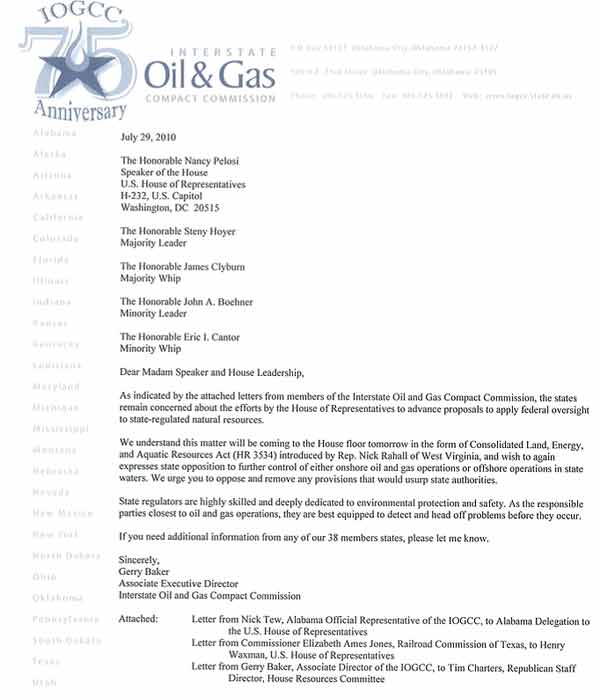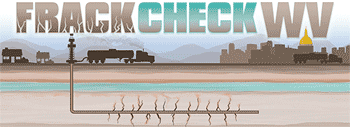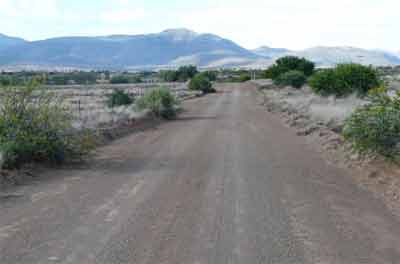Biblio
The Continental Center and KBR Tower (foreground) in downtown Houston.
Photo by Blair McFarlain.
The London lawyer accused by American authorities of helping KBR and its partners bribe Nigerian officials lost his battle against extradition yesterday.
The British High Court affirmed a decision to send Jeffrey Tesler, 62, a U.K. citizen, to Houston to answer criminal charges in federal court. He faces up to 55 years in prison and forfeiture of more than $132 million.
Tesler was indicted in February 2009. He was charged with one count of conspiracy to violate and ten counts of violating the FCPA. The DOJ alleges he was part of a decade-long scheme to bribe Nigerian government officials in exchange for contracts worth $6 billion to build liquefied natural gas facilities on Bonny Island, Nigeria.
His co-defendant, Wojciech Chodan, KBR's former commercial vice president at a U.K. subsidiary, was extradited from Britain in December last year. He pleaded guilty in Houston federal court to conspiring to violate the FCPA.
Chodan's sentencing is scheduled for February 22, 2011. He faces up to five years in prison on the conspiracy charge. As part of his plea agreement, Chodan, 72, who's also a U.K. citizen, agreed to forfeit $726,885.
See: Barry Meier and Clifford Krauss. "Inquiry Puts Halliburton in a Familiar Hot Seat". NYT Business Day. October 28, 2010.
Last year, for example, Halliburton and KBR agreed to pay $579 million to settle charges brought by the Justice Department and the Securities and Exchange Commission in connection with bribes that KBR had paid to top Nigerian officials over a decade. The companies still face criminal liability in Nigeria over the episode, which involved contracts to build a liquefied natural gas complex.
See: Snamprogetti, ENI In $365 Million Settlement
See: Fracking Resource Guide | Halliburton (updated)
Richard L. Cassin lived in the Middle East and Asia for 25 years. Before founding Cassin Law LLC, he was a senior partner in a major international law firm and managing partner of its Asia practice in Singapore, Hong Kong and Beijing.
He helps clients comply with the Foreign Corrupt Practices Act and other U.S. laws, and regularly assists companies facing compliance issues.
Sourcewatch page provides overview including links to directors, funders, and board members.
See FAS page on Earth Systems:
"Over the next century the earth’s resilience and adaptive capabilities will be stressed by the demands of global climate change, environmental degradation, a population increase of two billion people, and the accompanying increased resource and energy demand.
These stresses will place an additional burden upon the earth’s natural systems and the processes and resources that drive these systems. Future system scarcities and imbalances represent a security concern with the potential to destabilize and weaken existing political, social, and economic structures. And as these natural systems are inherently highly interdependent, it is necessary for them to be analyzed and considered systemically.
The Earth Systems Program seeks to address these issues by developing and promoting sustainable, scientifically sound, and inclusive solutions, policies, and technological developments."
"The Federation of American Scientists (FAS) was founded in 1945 by scientists who had worked on the Manhattan Project to develop the first atomic bombs. These scientists recognized that science had become central to many key public policy questions. They believed that scientists had a unique responsibility to both warn the public and policy leaders of potential dangers from scientific and technical advances and to show how good policy could increase the benefits of new scientific knowledge."
FAS works to challenge excessive government secrecy and promote public oversight with their FAS Project on Government Secrecy. Part of the project includes the distribution of the free electronic newsletter Secrecy News, which provides informal coverage of new developments in secrecy, security and intelligence policies.
Includes video interview with Hans Bethe on Atomic weapons.
Please note that information taken from Wikis should be verified using other, more reliable sources. It is a good place to start research, but because anyone can edit a Wiki, we do not recommend using it in research papers or to obtain highly reliable information.
Get Involved
If you think you might be affected by a proposed natural gas or hydroelectric project regulated by the Commission, you have certain rights. These rights range from being able to look at project correspondence to becoming an intervener and being able to appeal any FERC decisions in federal court.
The Commission's Citizen's Guides are a good place to start.
|
Should I Get Involved? Only you can ultimately answer this but we can help you think things through. Read More. |
How to Get Involved Take advantage of a suite of electronic services to easily get involved. Still prefer paper? That's fine too. Read more. |
The Process Natural gas and hydropower projects have distinct processes. This overview will help you to participate. Read More |
The Federal Energy Regulatory Commission, or FERC, is an independent agency that regulates the interstate transmission of electricity, natural gas, and oil.
Contains sections on how to file a Freedom of Information Act (FOIA) request, Enforcement, Legal Resources, Dispute Resoulution Service (DRS), etc.

The West Virginia Highlands Conservancy, Friends of Blackwater, and former West Virginia State Park Chief Cordie Hudkins have taken the fight over the proposed drilling for natural gas in Chief Logan State Park to the West Virginia Supreme Court of Appeals. There they have been joined by the West Virginia chapter of the Sierra Club as well as the West Virginia Division of Natural Resources and the West Virginia Department of Energy who also oppose the drilling.
The controversy is over a proposal by Cabot Oil and Gas to drill several gas wells inside Chief Logan State Park. The Department of Environmental Protection had originally denied the permit to drill based upon a statute which it believed prohibited drilling for gas in a state park. Cabot Oil and Gas (the driller) appealed to the Circuit Court of Logan County which reversed the Department of Environmental Protection and ordered that the permit be issued.
The case also has the potential to interfere with an important source of funding for West Virginia’s parks and recreation. West Virginia receives extensive funding for its parks from the federal Land and Water Conservation Fund. A condition of that funding is that the land dedicated for park use remain so and not be converted for non-recreational use. If West Virginia allows part of Chief Logan to be converted from recreational use to minerals extraction, this would interfere with funding under this program.
During last year's presidential campaign, Richard B. Cheney acknowledged that the oil-field supply corporation he headed, Halliburton Co., did business with Libya and Iran through foreign subsidiaries. But he insisted that he had imposed a "firm policy" against trading with Iraq.
"Iraq's different," he said...
Cheney has offered contradictory accounts of how much he knew about Halliburton's dealings with Iraq. In a July 30, 2000, interview on ABC-TV's "This Week," he denied that Halliburton or its subsidiaries traded with Baghdad.
"I had a firm policy that we wouldn't do anything in Iraq, even arrangements that were supposedly legal," he said. "We've not done any business in Iraq since U.N. sanctions were imposed on Iraq in 1990, and I had a standing policy that I wouldn't do that."
Cheney modified his response in an interview on the same program three weeks later, after he was informed that a Halliburton spokesman had acknowledged that Dresser Rand and Ingersoll Dresser Pump traded with Iraq. He said he was unaware that the subsidiaries were doing business with the Iraqi regime when Halliburton purchased Dresser Industries in September 1998.
See: Halliburton on Fracking Resource Guide.
Global Policy Forum is an independent policy watchdog that monitors the work of the United Nations and scrutinizes global policymaking. GPF works particularly on the UN Security Council, the food and hunger crisis, and the global economy. We promote accountability and citizen participation in decisions on peace and security, social justice and international law.
GPF gathers information and circulates it through a comprehensive and heavily-visited website, as well as through frequent media interviews. We play an active role in NGO networks and other advocacy arenas. We organize meetings and conferences and we publish original research and policy papers.
GPF analyzes deep and persistent structures of power and dissects rapidly-emerging issues and crises. GPF's work challenges mainstream thinking and questions conventional wisdom. We seek egalitarian, cooperative, peaceful and sustainable solutions to the world's great problems.
See: FCPA Blog | UK Court Won't Block Telser Extradition
See: Fracking Resource Guide | Halliburton (updated)
See: Halliburton's Interests Assisted by White House - Los Angeles Times
David Beers. "Tar Sands Expert Nikiforuk to Speak at UBC." The Tyee. 2010-09-09.
Tyee writer-in residence will reveal 'Who Regulates Canada's Oil Patch, and for Whom?'
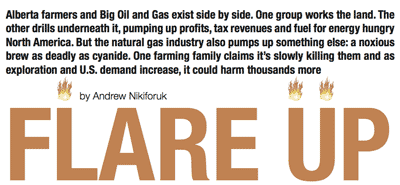
“Sour gas is one of the most dangerous, toxic substances known to man,” he said. “Having a sour gas well 800 metres from your home is like having a child molester an in urban community. You never know when things are going to go wrong.”
Charlie Smith. "Andrew Nikiforuk: EnCana pipeline attacks are not ecoterrorism." Straight.com. 2008-10-17.
You can read another interview with Nikiforuk about his Tyee project here and find his work, so far, here.
See: The Globe and Mail. "Andrew Nikiforuk wins Rachel Carson medal." July 22, 2009.
See: Society of Environmental Journalists.SEJ's Rachel Carson Environment Book Award."

Irena Salina's award-winning documentary investigation into what experts label the most important political and environmental issue of the 21st Century - The World Water Crisis.
Salina builds a case against the growing privatization of the world's dwindling fresh water supply with an unflinching focus on politics, pollution, human rights, and the emergence of a domineering world water cartel.
Interviews with scientists and activists intelligently reveal the rapidly building crisis, at both the global and human scale, and the film introduces many of the governmental and corporate culprits behind the water grab, while begging the question "Can anyone really own water?"
Beyond identifying the problem, Flow also gives viewers a look at the people and institutions providing practical solutions to the water crisis and those developing new technologies, which are fast becoming blueprints for a successful global and economic turnaround.
See: Jeannette Catsoulis. Sept. 12, 2008. The New York Times. "The War Between Public Health and Private Interests".
See: Cory Doctorow . Apr 7, 2008. BoingBoing.net. "For Love of Water: infuriating and incredible documentary about world's water-crisis".
See: World-Renowned Scientist Dr. Theo Colborn on the Health Effects of Water Contamination from Fracking
See: Clean Water Action
See: WATER: Rulings Restrict Clean Water Act, Foiling E.P.A.
and Supreme Court Restricts Clean Water Act
See: WATER | That Tap Water Is Legal but May Be Unhealthy
See: WATER | FRONTLINE: Poisoned Waters
See: Drinking Water: Understanding the Science and Policy behind a Critical Resource
See: Connie Watson, CBC Radio | Feb. 4, 2003. "Sell the rain: How the privatization of water caused riots in Cochabamba, Bolivia".
See: SERC (State Environmental Resource Center). 2004. "The Meaning of Privatization."
Implications of Privatization of Water Utilities
[Provides] examples where privatized water utilities have posed risks of rate hikes, negative economic impacts, inadequate customer service, and harm to natural resources...
Not So Fast, Natural Gas: Why Accelerating Risky Drilling Threatens America’s Water
Some energy analysts are predicting that natural gas will be the fuel of the future if advances in drilling technology allow drillers to tap into domestic shale rock formations on a large scale. But because of the impacts that the technology can have on water, natural gas could become our next energy disaster.
Food & Water Watch works to ensure the food, water and fish we consume is safe, accessible and sustainably produced.
Learn more: read about our victories.
See: Poisoned Profits
See: Blue Covenant
See: Tox Town
When Benjamin Grumbles was assistant administrator for water at the Environmental Protection Agency in the George W. Bush administration, he oversaw the release of a 2004 EPA report that determined that hydraulic fracturing was safe for drinking water. Then he watched as Congress used those findings to bolster the case for passing a law that prohibited the EPA from regulating fracking under the Safe Drinking Water Act.
In two interviews with ProPublica -- the first on June 29, 2009, soon after he left the EPA, and the second on March 5, 2011 -- Grumbles ponders the criticism leveled at the 2004 study and suggests that it's now time for Congress and the EPA to take another look at hydraulic fracturing. Our questions, and his answers, have been combined and edited for length to the version you see here.
Grumbles is currently on the board of the Clean Water America Alliance, a group focusing on water sustainability issues. He has also served as head of Arizona's Department of Environmental Quality.
Tempers and dangers are ramping up in the gas field we call home.
"Ah, for the good old days in the springtime of the Barnett Shale boom, when the words “royalty check” were enough to get homeowners to sign away their mineral rights and everyone still thought the 3 a.m. screech of drilling equipment was just the sound of money.
When no one thought that wells could possibly send property values tumbling or turn well water brown, before drilling sites and pipelines had started leaking, burping, and blowing up. When there were no neighborhood groups ganging up to demand higher royalties, tighter controls, or — say it ain’t so — trying to stop wells outright...
...Even gas company officials admit that the boom is drawing more and more inexperienced workers to drilling sites. “Veteran crews are being divided up and filled with people who have no experience whatsoever working rigs, laying pipe, and such,” said pipeline company manager Jerry Holsworth.
And so accidents are increasing. At least two people have been killed in Barnett Shale operations thus far.
Frac Tech is one of the smaller companies mentioned in the memorandum to Members of the Subcommittee on Energy and Environment from Chairman Henry A. Waxman and Subcommittee Chairman Edward J. Markey Examining the Potential Impact of Hydraulic Fracturing. (PDF)
Frac Tech describes itself as “one of the largest and fastest growing land stimulation companies.”
Little is known about the practices of these and other small and medium sized companies that provide fracturing services across the country.
Frac Tech's CEO Dan Wilk received one of the eight letters from this Committe on February 18, 2010. They are listed in this document:
Energy & Commerce Committee Investigates Potential Impacts of Hydraulic Fracturing.
See Shale Maps of the U.S, World, Australia, China, Eastern Europe and the Middle East.
See: Jaime Adame. "Cisco's Frac Tech Grows". August 7, 2010. Abilene Reporternews Online.
This website is a joint project of the Ground Water Protection Council and the Interstate Oil and Gas Compact Commission. It was launched on April 11, 2011 and only covers wells drilled starting in 2011. It appears to be an attempt at Gas Industry "transparency" and has funding support from the U.S. Depatment of Energy (DOE). It claims to disclose the chemical additives used in the hydraulic fracturing process on a well-by-well basis.
Of all the lobbyists bringing their issues to Capitol Hill, the Groundwater Protection Council is one of the smaller players. I have to wonder, reading the rankings on Open Secrets, "Lobbying Spending Database: Environment, 2009", why this groundwater organization spends less on its annual lobbying than "Fur Wraps the Hill" or the "Pittsburgh Parks Conservancy"? Groundwater is a hot button national issue, affecting both the urban and agricultural sectors.
The industry groups proudly stamping their logos on FracFocus need to come up with more cash or be outed as a do-nothing front organization advocating the corporate pillaging of our natural resources in the name of energy development. They wave the Tenth Amendment around like the flag at Iwo Jima.
How do they demonstrate the committment to "protecting our nation's ground water"? They conveniently share an address with the Interstate Oil and Gas Compact Commission (IOGCC). 13308 N. MacArthur Blvd., Oklahoma City, OK.
IOGCC claims to have a noble mission but talk is cheap... They advocate less intervention by the Federal government on behalf of the shared resources in our environment. Twenty thousand bucks?
Read between the lines! Here is a letter written to Congress by the IOGCC calling for the Feds to keep their hands off! The $20,000 looks like a smokescreen to me. Pocket change...(Neil Zusman, 2011-05-24).
From their website:
On this site you can search for information about the chemicals used in the hydraulic fracturing of oil and gas wells. You will also find educational materials designed to help you put this information in perspective.
See: Chu Names Panel to Study Fracking.
My critique of the NYT Green report
Broder's piece goes on to offer a smokescreen of protest by the right, but according to Dusty Horwitt of the Environmental Working Group, “An industry insider like John Deutch is completely unacceptable to lead this panel...It looks as if the Obama Administration has already reached the conclusion that fracking is safe.”
FrackCheckWV.net was created as a platform for educating citizens about the environmental impacts of hydraulic fracturing and providing tools and guidance for effective citizen action and advocacy.
The editors of this site are volunteers with watershed and conservation groups in both West Virginia and neighboring states.
Excellent website has sections on Take Action, About, Friends, Impacts, Regulation, Your Report, Calendar, Cool Blogs and Links.
See: New WVU-Va Tech study links water quality and cancer deaths in West Virginia coalfields
See: West Virginia Surface Owners' Rights Organization (WVSORO)
See: West Virginia Blue: Dunkard Creek fish kill
See: The risks of oil and gas production acknowledged around the world
See: Fight Over Gas Wells in Chief Logan Heads to Supreme Court
See: WATER: Gas drilling in huge Appalachia reserve yields foul, briny byproduct - AP
See: Natural Gas Drilling Threatens Communities in Northeastern United States
See: Marsh Fork Elementary: Journey Up Coal River | A Community and Strip Mining
Pennsylvania environment officials are racing to clean up as much as 8,000 gallons of dangerous drilling fluids after a series of spills at a natural gas production site near the town of Dimock last week...
...The incident is the latest in a series of environmental problems connected to Cabot’s drilling in the Dimock area. Last winter, drinking water in several area homes was found to contain metals and methane gas that state officials determined leaked underground from Cabot wells. And in the spring, the company was fined for several other spills, including an 800-gallon diesel spill from a truck that overturned.
Site includes extensive background information.
A moratorium on hydraulic fracturing has been under effect in South Africa since April, 2011.
On Friday 25 March, environmental activist Lewis Pugh delivered a passionate call to action at a public lecture in Cape Town. He implored South Africans to stand up for our rights – particularly the right to water, and the right to a healthy environment – and take on corporate bullies like Shell. If you care about the Karoo, if you care about our country, keep reading...
Ladies and gentlemen, that is what is at stake here today: our children's future. And that of our children's children.
There may be gas beneath our ground in the Karoo. But are we prepared to destroy our environment for five to ten years worth of fossil fuel and further damage our climate? Yes, people will be employed – but for a short while. And when the drilling is over, and Shell have packed their bags and disappeared, then what? Who will be there to clean up? And what jobs will our children be able to eke out?
Now Shell will tell you that their intentions are honourable. That fracking in the Karoo will not damage our environment. That they will not contaminate our precious water. That they will bring jobs to South Africa. That gas is clean and green. And that they will help secure our energy supplies. When I hear this, I have one burning question. Why should we trust them? Africa is to Shell what the Gulf of Mexico is to BP.
Shell, you have a shocking record here in Africa. Just look at your operations in Nigeria. You have spilt more than 9 million barrels of crude oil into the Niger Delta. That's twice the amount of oil that BP spilt into the Gulf of Mexico. You were found guilty of bribing Nigerian officials, and to make the case go away in America, you paid an admission of guilt fine of $48 million. And to top it all, you stand accused of being complicit in the execution of Nigeria's leading environmental campaigner, Ken Saro-Wira, and eight other activists. If you were innocent, why did you pay $15.5 million to the widows and children to settle the case out of court?
Shell, the path you want us to take us down is not sustainable. I have visited the Arctic for seven summers in a row. I have seen the tundra thawing. I have seen the retreating glaciers. I have seen the melting sea ice. And I have seen the impact of global warming from the Himalayas all the way down to the low-lying Maldive Islands. Wherever I go, I see it.
Now is the time for change. We cannot drill our way out of the energy crisis. The era of fossil fuels is over. We must invest in renewable energy. And we must not delay.
Shell, we look to the north of our continent and we see how people got tired of political tyranny. We have watched as despots, who have ruled ruthlessly year after year, have been toppled in a matter of weeks. We too are tired. Tired of corporate tyranny. Tired of your short-term, unsustainable practices. We watched as Dr Ian Player, a game ranger from Natal, and his friends, took on Rio Tinto (one of the biggest mining companies in the world) and won. And we watched as young activists from across Europe, brought you down to your knees, when you tried to dump an enormous oil rig into the North Sea.
Shell, we do not want our Karoo to become another Niger Delta. Do not underestimate us. Goliath can be brought down. We are proud of what we have achieved in this young democracy, and we are not about to let your company come in and destroy it.
So let this be a call to arms to everyone across South Africa, who is sitting in the shadow of Goliath: stand up and demand these fundamental human rights promised to you by our Constitution. Use your voices – tweet, blog, petition, rally the weight of your neighbours and of people in power. Let us speak out from every hilltop. Let us not go quietly into this bleak future.
Let me end off by saying this: you have lit a fire in our bellies, which no man or woman can extinguish. And if we need to, we will take this fight all the way from your petrol pumps to the very highest court in this land. We will take this fight from the farms and towns of the Karoo to the streets of London and Amsterdam. And we will take this fight to every one of your shareholders. And I have no doubt, that in the end, good will triumph over evil. DM
Lewis Pugh is a lawyer and environmental activist. He belongs to the Treasure the Karoo Action Group.
See: Aragom Eloff. Ivo Vegter vs. the Fracking Fringe. 2011-04-18.
See: Julienned DuToit. Fracking the Karoo - The People Say No! 2011-01-31.
See: Robert Brand. South Africa Endorses Plans For Karoo Gas-Drill Freeze, Ending Shell Hopes - Bloomberg. 2011-04-21.
See: Donald Paul. Drill Baby Drill. 2011-04-18.








